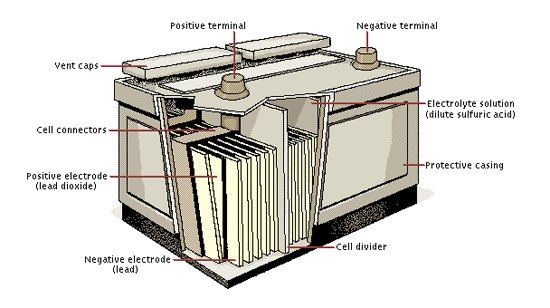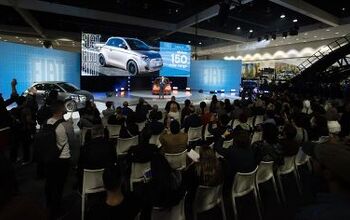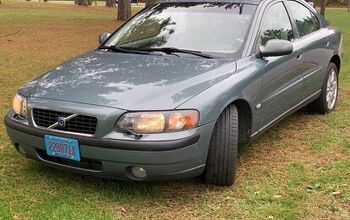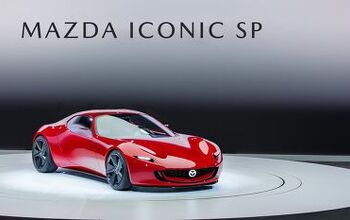Battery Hopes Fall Flat

Researchers are quickly getting disenchanted by the high price of lithium-ion batteries, paired with a growing number of high-profile incidents involving smoke and fire, Reuters says in an in-depth analysis. Some are looking way beyond Lithium-Ion. Some go back to technology that is older than the car: Lead-Acid.
Many experts believe it will take at least another decade for lithium-ion technology to be ready for widespread adoption in transportation.
Others don’t see different chemistry for decades.
Companies like Energy Power Systems, a team of former Chevrolet Volt and Toyota Prius engineers, became “disenchanted” with lithium-ion’s complexity and cost and are now seeking to improve lead-acid.
Companies like Toyota are looking into alternatives to lithium-ion, such as lithium-air, and a much less tempestuous solid state battery.
“We don’t think that lithium-ion batteries are going to help us get to a point where we can dramatically increase volume and really call it a mass market,” Toyota spokesman John Hanson said.
One thing is clear: The battery is no microchip with a dramatic shrinkage of size and gains in power, and the miracle battery to end all electric vehicle woes is a mirage.

Bertel Schmitt comes back to journalism after taking a 35 year break in advertising and marketing. He ran and owned advertising agencies in Duesseldorf, Germany, and New York City. Volkswagen A.G. was Bertel's most important corporate account. Schmitt's advertising and marketing career touched many corners of the industry with a special focus on automotive products and services. Since 2004, he lives in Japan and China with his wife <a href="http://www.tomokoandbertel.com"> Tomoko </a>. Bertel Schmitt is a founding board member of the <a href="http://www.offshoresuperseries.com"> Offshore Super Series </a>, an American offshore powerboat racing organization. He is co-owner of the racing team Typhoon.
More by Bertel Schmitt
































Comments
Join the conversation
But, but, but what about the Boeing 787? Is it destined to sit on the tarmac forever? Or just until someone nips down to NAPA for a few premium Exides and some 1000 mcm welding cable to join 'em up ... Maybe Boeing can repurpose a lavatory to get the extra space needed for lead acid vs lithium ion.
I maintain that the auto industry is what amounts to a bit player in battery development. If you see a revolution in battery tech anytime soon it will appear in your iPad or smartphone, not your car. The high end batteries we have now are a result of the increasing demands placed upon our portable electronics by us. 10 years ago how big was a laptop battery, what did it power (no wi-fi, low RPM hard drive, low res and dim or monochrome display, and 90 minutes on a charge). My MacBook gives 6 hours to a charge running wi-fi, a high res display, and spinning a hard drive at 7200 RPMs and it is dated. Smartphones are where it is at though. Like range anxiety in a car, people don't like a phone they have to charge during the day. This fact alone is the largest factor driving battery development IMHO.
I kind of agree that lithium has lots of issues unless the system is designed properly. I work for a company that does shipboard electric and there have been several issues with lithium battery banks in the last few years. These banks end up as complex systems due to then charging issues with lithium and a lot of companies jumped into the market that had not tested the charge balancing systems over the long run. The fact that Toyota thinks there too complicated means there will be more issues before it becomes a really mainstream technology for large battery banks.
One thing I haven't seen anyone mention here is that batteries and liquid fuel are fundamentally different. With a gasoline powered car, only about 1/16th of the chemistry required to produce power is actually carried on board. A properly functioning gasoline engine consumes about 15 kg of air for every kg of gasoline. The air comes from the atmosphere. And likewise, the waste products are simply dumped out the back of the car into the face of the vehicle following (only fair, since the vehicle in front is doing the same thing :). On a battery powered car, ALL the chemistry has to be carried on board, and likewise all the waste product. Refueling (recharging) changes the waste product to new chemistry. Sure, even then, batteries don't have the energy density, but taking that into account does even things up a little. Yes, there are 'air' batteries (mentioned somewhere above) but I have no idea what kind of nasties they dump into the atmosphere as waste, if indeed they do.